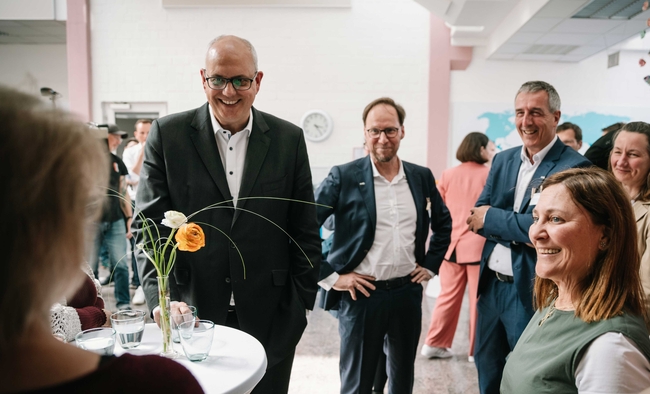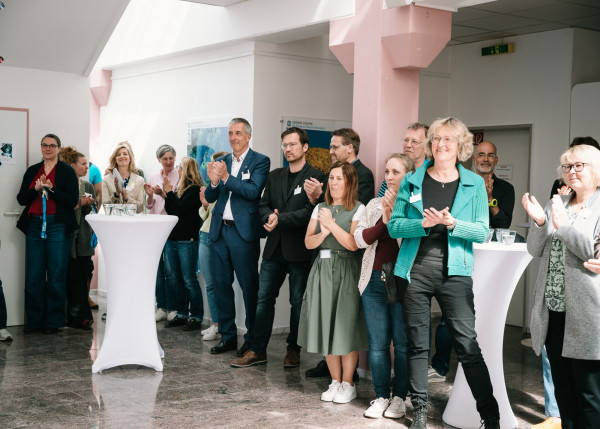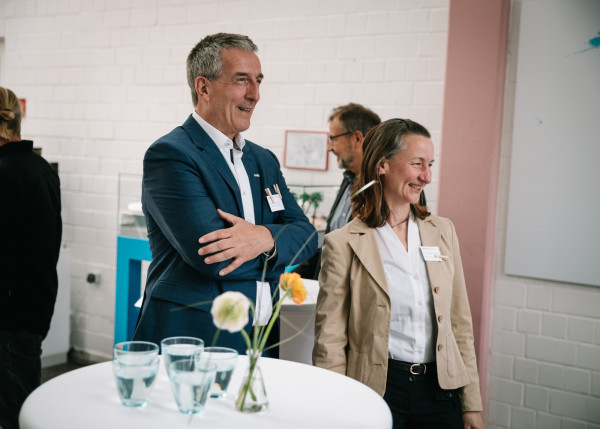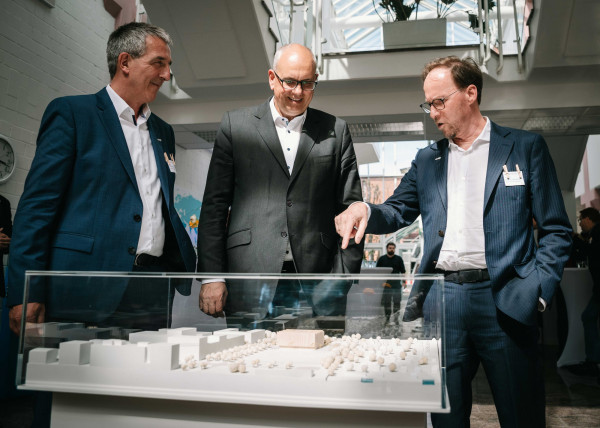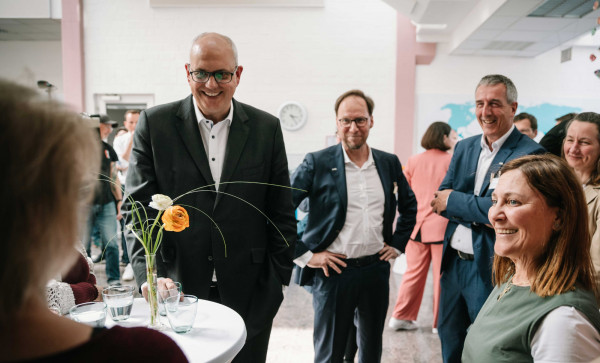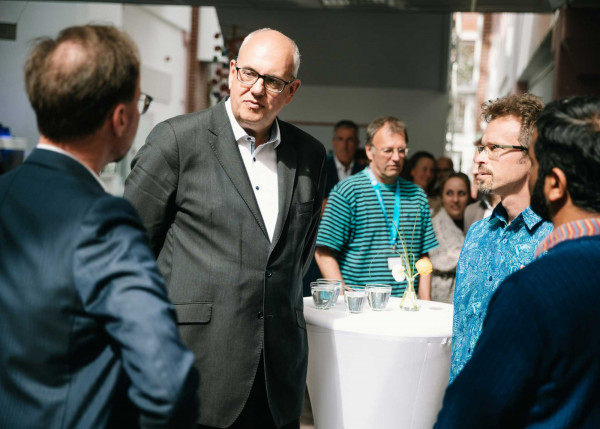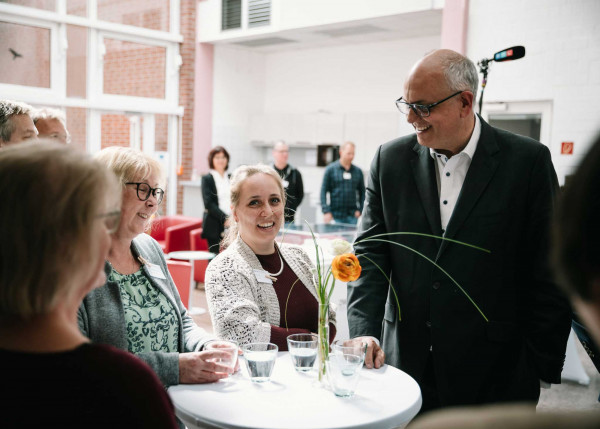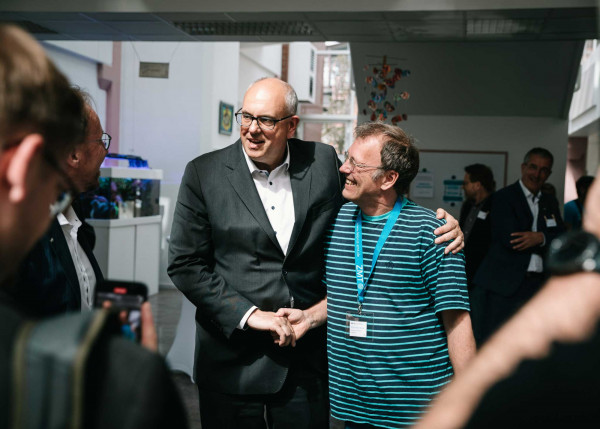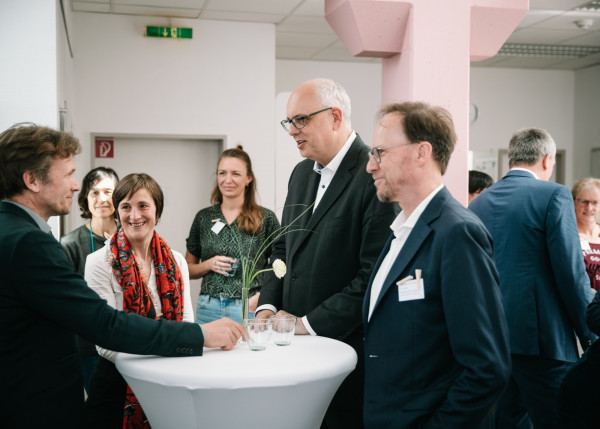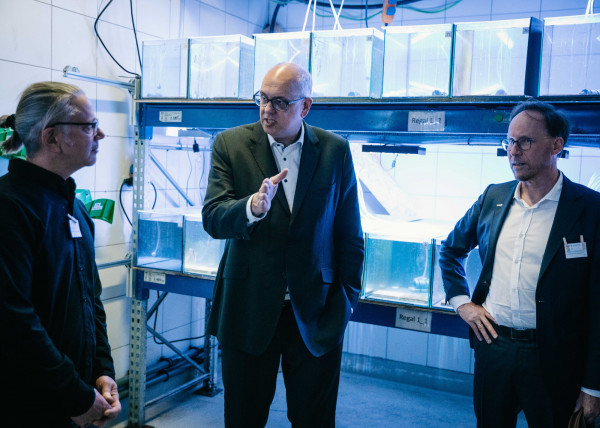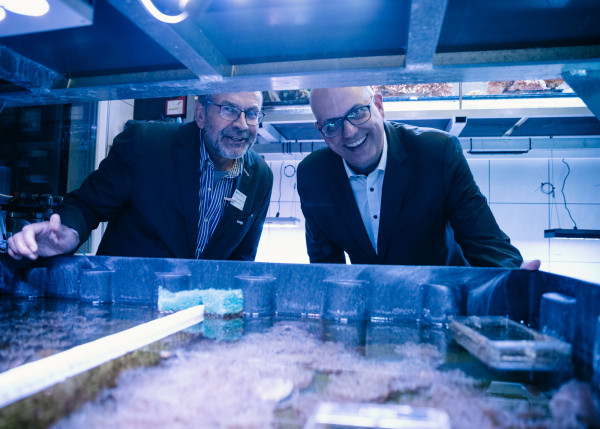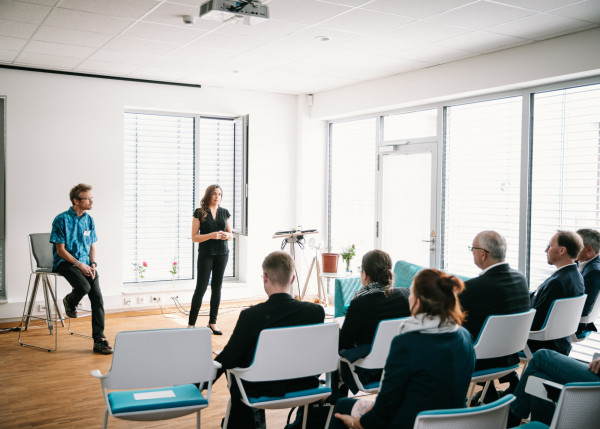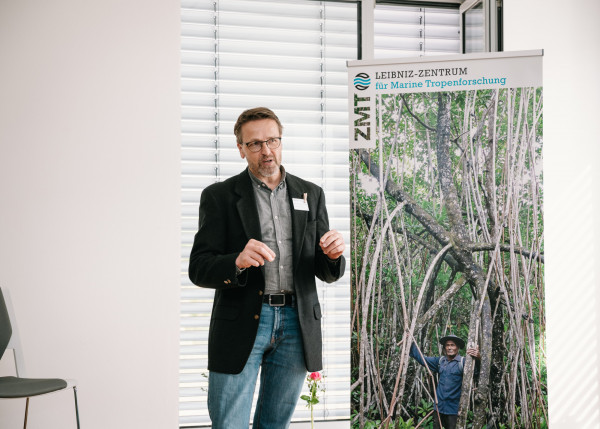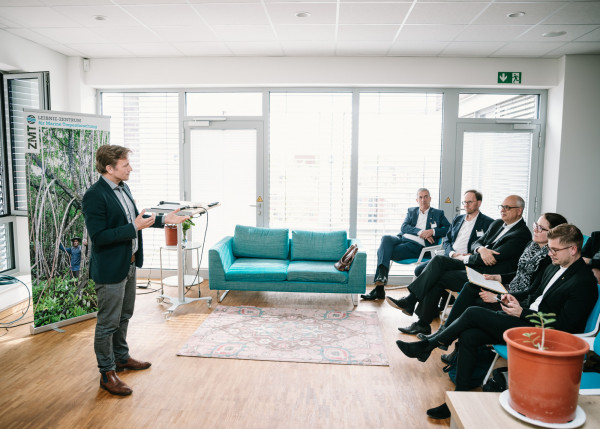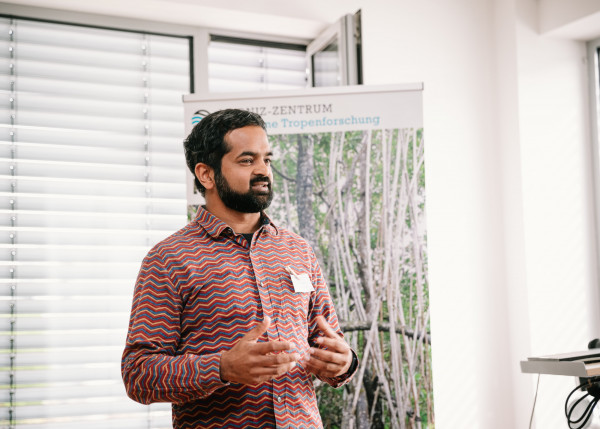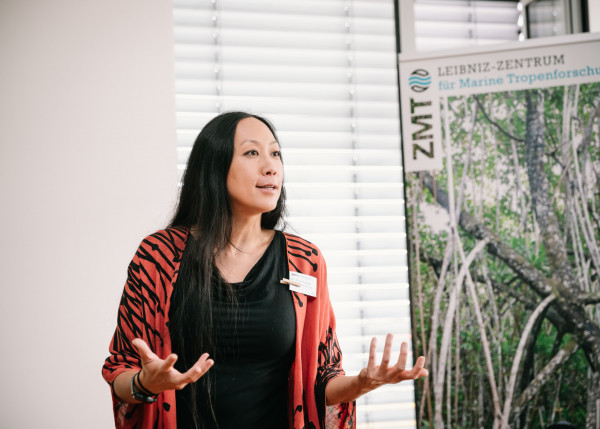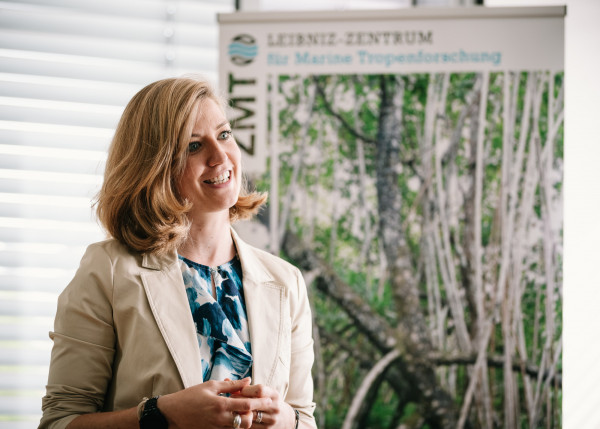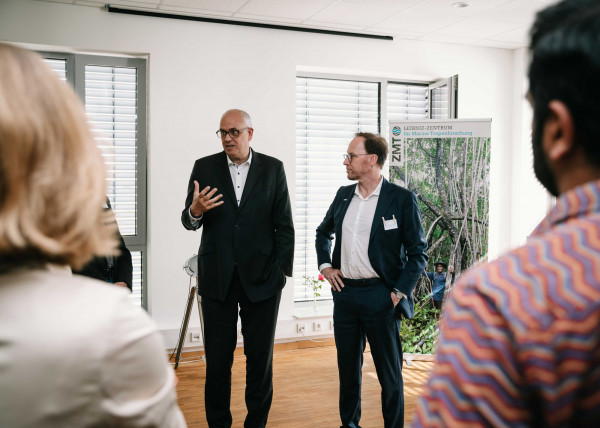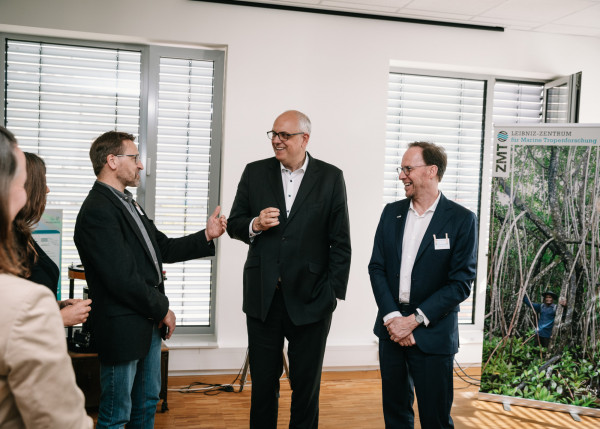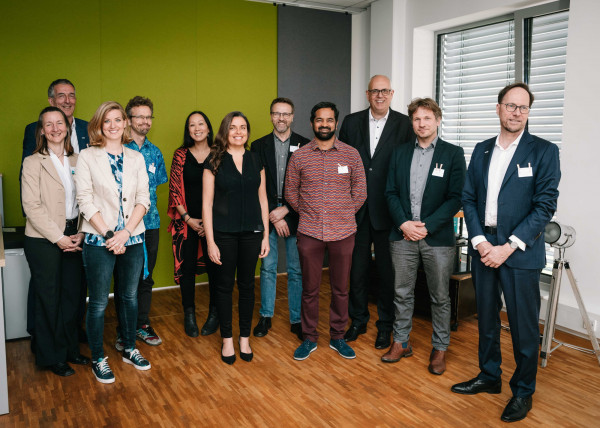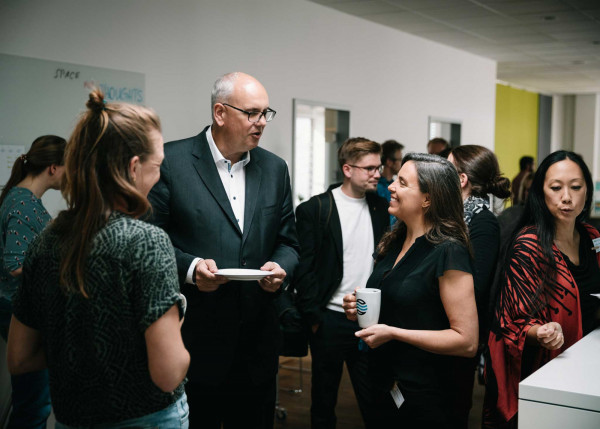05/05/2023 | The state of Bremen as a location for internationally renowned research - Mayor Dr Andreas Bovenschulte visited the Leibniz Centre for Tropical Marine Research (ZMT) today (May 4). It is the only institute in Germany dedicated to both natural and social science research on tropical and subtropical coastal ecosystems.
Mayor Bovenschulte: "What we have here in our state is a beacon of science. From its foundation 32 years ago, it only took the ZMT 18 years to become a member of the highly renowned Leibniz Association. And for the last five years it has been part of the German Alliance for Marine Research. What is remarkable here is the close link between the natural and social sciences. This holistic approach makes the ZMT something very special, and we are very, very happy to have it here in Bremen."
Prof. Dr. Raimund Bleischwitz, Scientific Director of ZMT: "We are very pleased to welcome Mayor Bovenschulte to ZMT and to talks to him about diverse research. With its work on coral reefs, mangroves and tropical coastal communities, ZMT is firmly anchored in the marine sciences, one of the scientific focal points of the state of Bremen. With his visit, the mayor supports ZMT's mission to provide a scientific basis for the protection and sustainable use of tropical coastal ecosystems."
During his visit, Bovenschulte also had a extensive exchange with many of the almost 160 employees and ZMT researchers explained some of their scientific projects. The institute's scientists conduct research in more than 30 countries around the globe. The focus of the 18 scientific working groups is on sustainable coastal zone management, the protection of tropical coastal ecosystems and close interdisciplinary cooperation with partner institutions in the tropics.
Prof. Dr. Raimund Bleischwitz, wissenschaftlicher Geschäftsführer des Leibniz-Zentrums für Marine Tropenforschung (ZMT), begrüßt den Bremer Bürgermeister Dr. Andreas Bovenschulte | Foto: Jan Meier, ZMT
Sharing and exchanging knowledge and capacity development are important tasks of ZMT. The Bremen institute trains students and doctoral candidates from Germany and all over the world: ZMT researchers teach at universities in Bremen and the region and make a significant contribution to the range of international degree courses.
ZMT's success proves it right - and has created a need for additional space. For this reason, the federal government and the state of Bremen have agreed on a new building for the ZMT in Otto-Hahn-Allee. A building with around 6,500 square metres of space is to be constructed there at a cost of just under 35 million euros, which will meet all current scientific requirements (including sustainability) and provide space for the employees currently spread across five locations.





